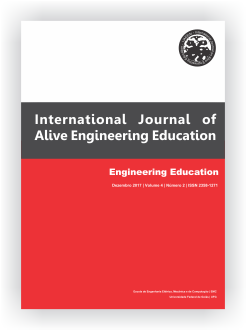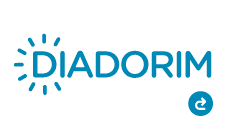The Importance of Internationalization on Engineering Programs from Minas Gerais Universities: UEMG’s Case
DOI:
https://doi.org/10.5216/ijaeedu.v4i2.48293Palavras-chave:
Engineering Education, Alive Engineering Education, IJAEEdu, ICAEEduResumo
Gradually instigated by cultural, economic and social transformations generated due to globalization, especially with regard to engineering, both universities and students are looking for new forms of teaching and learning. Concomitantly, as institutions and the labor market increasingly aspire skilled professionals, this search seems to be directed outside the country where there is greater availability of technology and new qualifications, as well as the possibility of proficiency in another language. In this way, the implementation of academic mobility programs such as Science without Borders (CsF), have great importance for the internationalization of engineering courses in Brazil's universities. Through this exchange, undergraduates have the opportunity to train and study abroad in order to maintain contact with competitive education systems in relation to technology and innovation, bringing back such knowledge to universities and to the nation as a whole. In this sense, this work aims to measure and emphasize the importance of this program for Minas Gerais universities, with focus on the performance evaluation of the UEMG Engineering campus, based in João Monlevade city. With the help of the CsF Portal and support of the UEMG International Relations Advisory, it was possible to collect general data about the program and find the number of students which were contemplated with scholarships in the four engineering courses of UEMG from 2011 to 2016. In addition, a questionnaire was applied to students who have already participated in this exchange for a qualitative effect. The results showed that engineering was the most requested area and that Minas Gerais universities presented great potential in the number of scholarships contemplated by the program. In a closer evaluation of the UEMG, it was observed that there is a disparity between the engineering courses regarding the number of scholarship students, highlighting the Mining Engineering course in detriment of the others. However, it should be noted that this program was very important since it has allowed students to acquire more knowledge in specific subjects of their courses, improve another language, experience new cultures as well as learn new methodologies of teaching and assessment, such techniques that they can bring into their engineering programs in Brazil.
Referências
AVEIRO, T. M. M. O Programa Ciência sem Fronteiras como Ferramenta de Acesso à Mobilidade Internacional. Revista de Educação, Ciência e Tecnologia, Canoas, v. 3, n. 2, p. 1-21, 2014.
BERRY, C.; TAYLOR, J. Internationalisation in higher education in Latin America: policies and practice in Colombia and Mexico. Higher Education, v. 67, n. 5, p. 585-601, 2014.
BRASIL. Decreto nº 7.642, de 13 de dezembro de 2011. Institui o Programa Ciência sem Fronteiras. Brasília. Diário Oficial da União, Brasília, 14 dez. 2011.
MATTAR, F. N. Pesquisa de marketing: metodologia, planejamento, execução e análise. 2ª ed. São Paulo: Atlas, 1994, 2v., v.2.
BRASIL. Portal Ciência sem Fronteiras. Brasília: 2016. Disponível em: <http://www.cienciasemfronteiras.gov.br>. Acesso em: 15 Jan. de 2017.
SILVA, Richéle T. P. Política de incentivo a formação de pesquisadores: reflexões sobre o programa Ciência sem Fronteiras. In: IX ANPED-SUL - A Pós-graduação e suas interlocuções com a Educação Básica, 2012, Caxias do Sul/RS.
Downloads
Publicado
Edição
Seção
Licença
Ao submeter eletronicamente um artigo na Revista Eletrônica Engenharia Viva, o responsável pela submissão:
a) Declara que o documento em questão é um trabalho original, e que detém prerrogativa de conceder os direitos contidos nesta licença. Declara também que a entrega do documento não infringe, tanto quanto lhe é possível saber, os direitos de qualquer outra pessoa ou entidade.
b) Se o documento em questão contém material do qual não detém os direitos autorais, declara ter obtido autorização do detentor dos direitos autorais para conceder à Universidade Federal de Goiás os direitos requeridos por esta licença, e que esse material cujos direitos são de terceiros está claramente identificado e reconhecido no texto ou conteúdo do documento em questão.
c) Declara ainda que qualquer pessoa nomeada como autor ou co-autor do documento tem consciência do fato e concorda em ser assim nomeado.
Termo de Autorização
Na qualidade de responsável pela submissão do documento, autorizo a Escola de Engenharia Elétrica, Mecânica e de Computação da Universidade Federal de Goiás (EMC/UFG) a disponibilizar a obra, gratuitamente, por meio do Sistema Eletrônico de Editoração de Revistas da UFG (SEER/UFG) ou na forma impressa, sem ressarcimento dos direitos autorais, de acordo com a Lei nº 9610/98. Fica permitido, a leitura, a impressão e/ou download, a título de divulgação da produção científica brasileira. Qualquer uso da obra que não o autorizado sob esta licença ou pela legislação autoral é proibido.



